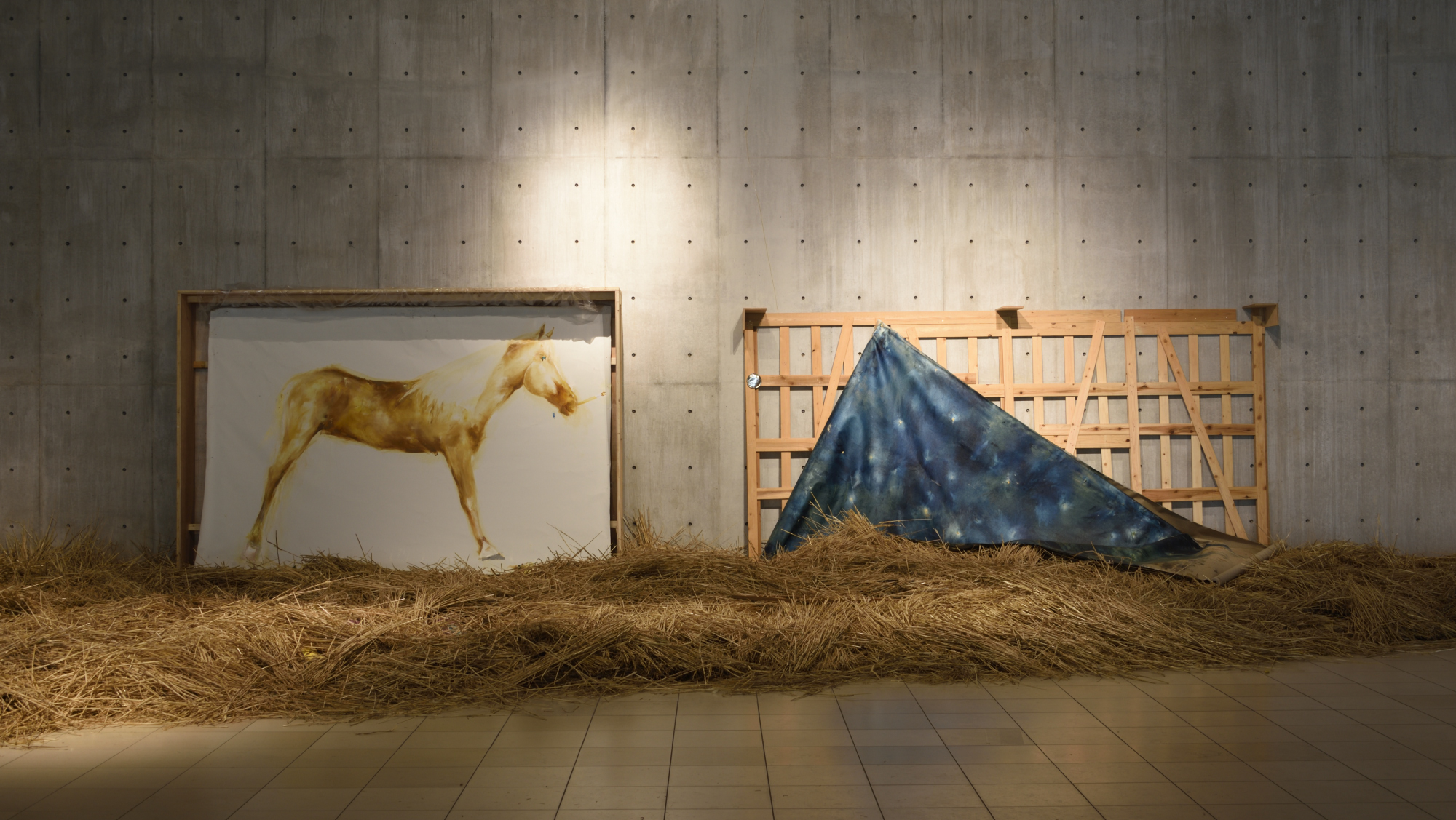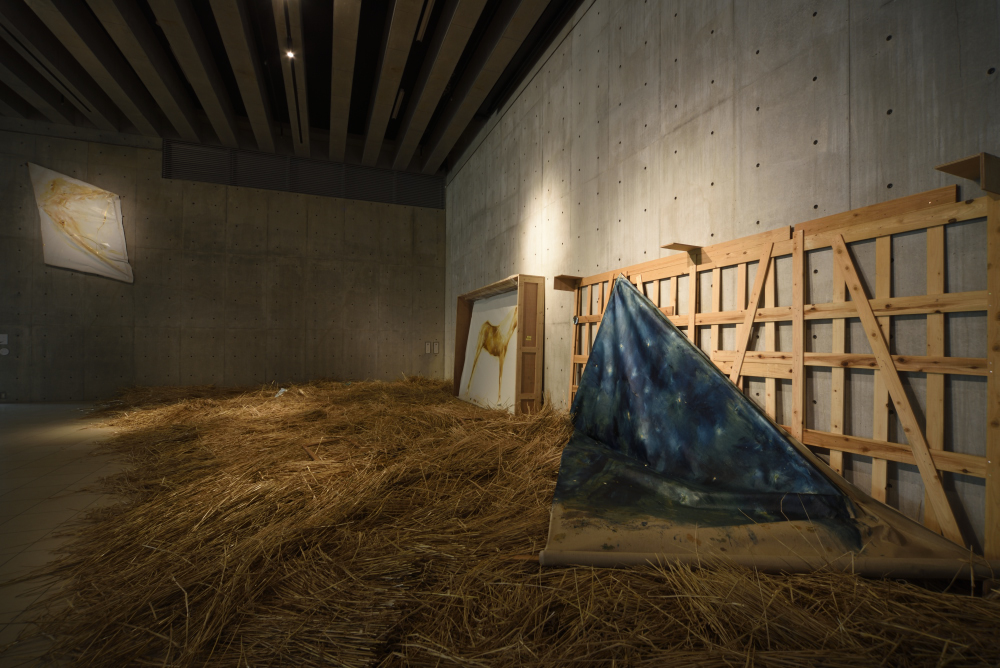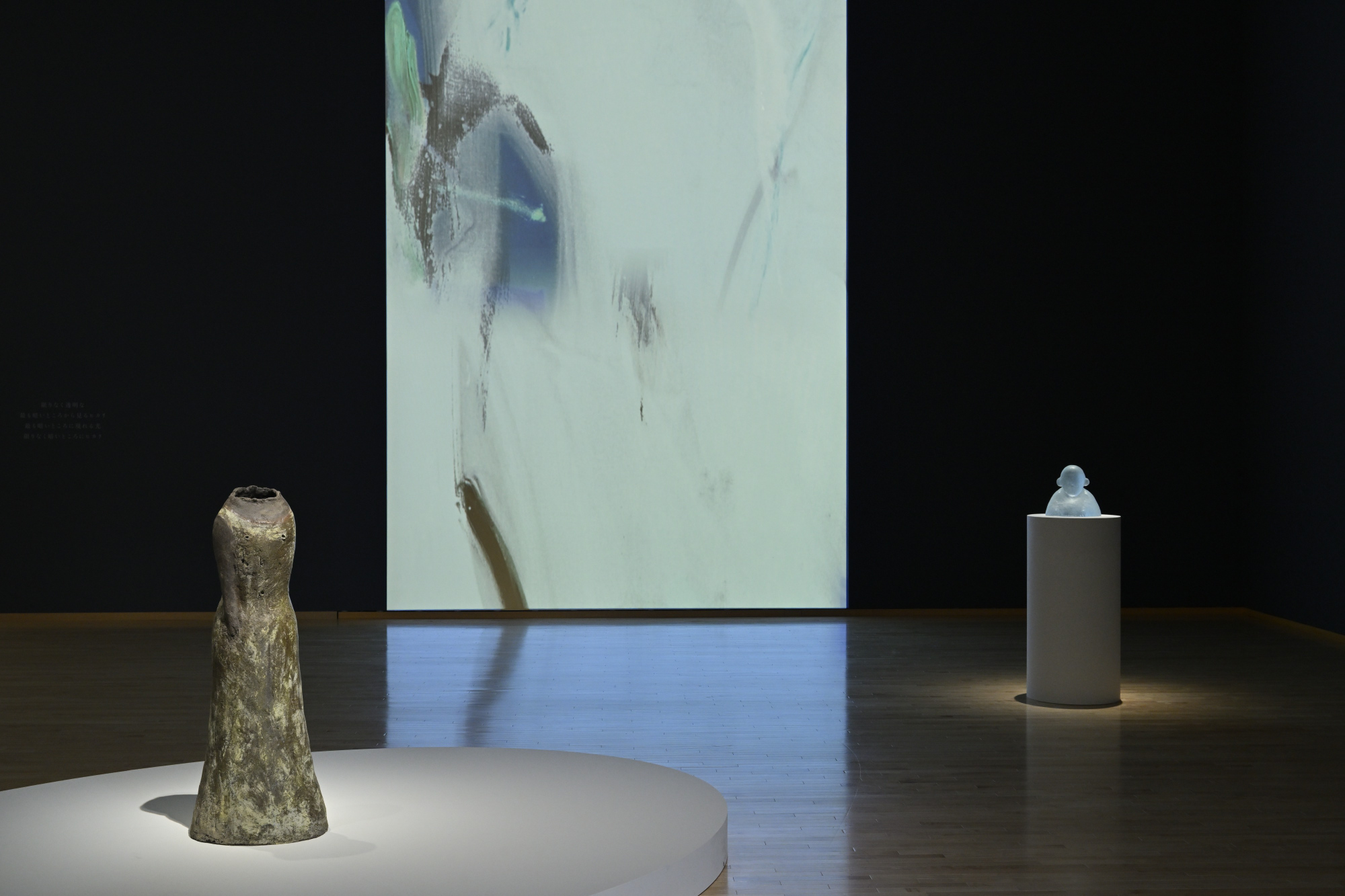All Living Things
Information
2016.7.24 Sun – 11.29 Tue
Vangi Sculpture Garden Museum
Masato Kobayashi was born in Tokyo in 1957. He was the Japanese representative of the 1996 São Paulo Bienniale. In 1997, invited by Jan Hoet, he traveled to Europe, and continued to create works in various locations while based in Ghent, Belgium. Kobayashi returned to Japan in 2006 and began working based in Tomonoura, Fukuyama City, Hiroshima. He was also a professor at the Tokyo University of the Arts from 2017 to 2023. He has developed a unique technique of applying color by rubbing it into the canvas while supporting the fabric with one hand, simultaneously stretching it over the wooden frame to bring the painting to life and “aiming for a painting that does not lose its essence by merely existing.” Kobayashi has prolifically produced paintings that possess a form and unique brightness that can only emerge from that specific situation.
Selected exhibitions: “About Freedom”, ShugoArts, Tokyo, 2023; “Family of this Planet”, ShugoArts, Tokyo, 2021; “Artist and the Model”, ShugoArts, Tokyo, 2019; “ART TODAY 2012”, Sezon Museum of Modern Art, Nagano, 2012; “MASATO KOBAYASHI – The Paint of the Planet”, Nariwa Museum, Okayama, 2009; “Starry Paint, stars of outer space by pure painting”, Tensta Konsthall, Spanga, Sweden, 2004; “U-TOPOS Biennale Tirana”, The National Gallery of Art, Tirana, 2003; “A Son of Painting Masato Kobayashi”, S.M.A.K., Ghent, 2001; “Over the Edges”, S.M.A.K., Ghent, 2000; “KOBAYASHI Masato”, The Miyagi Museum of Art, 2000.
Publications: Masato Kobayashi MK, HeHe, 2024; The autobiographical novel trilogy, Paint of this Planet—Under the tree at Hitotsubashi University, ART DIVER, 2018; Paint of this Planet—Duifhuisstraat 52, ART DIVER, 2020
Selected Public Collections: Iwaki City Art Museum (Iwaki, Japan). The Miyagi Museum of Art (Sendai, Japan). The Museum of Contemporary Art Tokyo (Tokyo, Japan). The National Museum of Modern Art, Tokyo (Tokyo, Japan). Utsunomiya Museum of Art (Utsunomiya, Japan). S.M.A.K. The Municipal Museum of Contemporary Art (Ghent, Belgium). The Vangi Sculpture Garden Museum (Shizuoka, Japan)
Leiko Ikemura was born in Tsu City, Mie, Japan. She moved to Spain in the 1970s, then to Switzerland, and has been based in Germany since the early 1980s. Ikemura was a professor at the Berlin University of the Arts from 1991 to 2015. She has served as a visiting professor at the graduate school of Joshibi University of Art and Design since 2014. In 2019, she won the Minister of Education, Culture, Sports, Science and Technology’s Art Encouragement Prize. Ikemura works in a variety of media including painting, terra cotta, bronze, glass, photography, and poetry. She utilizes traditional materials for her paintings and sculptures, which contain a high level of spirituality and are highly acclaimed both domestically and internationally. The shapes and colors emitted from the unique texture of her art create images that blend figures, plants, and horizons, encompassing the fluid relationship between people, nature, and the universe.
Selected solo exhibitions: infinitely transparent, ShugoArts, Tokyo, 2022; Nach Neuen Meeren, Kunstmuseum Basel, Basel, Switzerland, 2019; Nordiska Akvarellmuseet, Skärhamn, Sweden, 2019; Our Planet – Earth and Stars, National Art Center, Tokyo, 2019; After another world, ShugoArts, Tokyo, 2017; …und plötzlich dreht der Wind, Haus am Waldsee, Berlin, 2016; Poetics of Form, Nevada Museum of Art, Reno (Nevada), 2016; All About Girls and Tigers, Museum für Ostasiatische Kunst Cologne, 2015; Pioon, The Vangi Sculpture Garden Museum, Shizuoka, 2014; i-migration, Staatliche Kunsthalle Karlsruhe, 2013; Korekara oder die Heiterkeit des fragilen Seins, Museum für Asiatische Kunst, Staatliche Museen zu Berlin, Stiftung Preußischer Kulturbesitz, Berlin, 2012; Mare e Monti. Kolumba, Cologne, 2012; Transfiguration, The National Museum of Modern Art, Tokyo, Mie Prefectural Art Museum, Mie, 2011.
Selected Public Collections: Bundeskunstsammlung (Berlin, Germany), The Centre Pompidou (Paris, France), Kunstmuseum Basel (Basel, Switzerland), Kunstmuseum Liechtenstein (Vaduz, Liechtenstein), Museum für Ostasiatische Kunst Köln (Cologne, Germany), mumok – Museum Moderner Kunst Stiftung Ludwig Wien (Vienna, Austria), Museum of Contemporary Art Tokyo (Tokyo, Japan), The National Museum of Art, Osaka (Osaka, Japan), MOMAT – The National Museum of Modern Art (Tokyo, Japan), Pola Museum of Art (Kanagawa, Japan), Staatliche Kunsthalle Karlsruhe (Karlsruhe, Germany)






